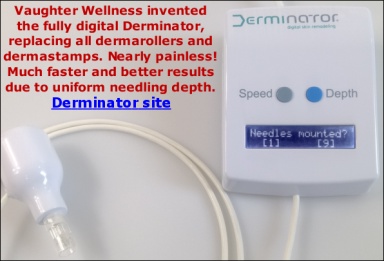Hi Sarah and Emily,
Look, I think it is more likely in forums generated by companies selling their own set of products that may have that type of business mentality and the worries with it. I understand that perspective. But I do not know how many time I have say it in order to satisfy your worry that I mean no harm intentionally. I am a 20 year old who happens to be a skin care junkie. I just like to share information!
I have no authoritative power over anyone or anything on this forum. Funny though, now I feel like helping people in this forum beyond the basics (i.e., giving lots of information and product suggestions) is a blessing and a curse. I get the “thank you” and then I also get the worries from the administrator… oh, and don’t forget from sweet Emily. LOL. Will this be my demise? I mean, I think what I am doing is altruistic in a sense. I never expect to earn anything in return. I just type without knowing whether or not the person I helped really got the helped needed. A forum that is restrictive and controlling of what people have to contribute (without obscenity and foul language) is a forum that is hiding the truths from the public interest. If you have a very structured forum, all people ever going to get is what you want them to get, which is not the public interest. The public wants public information, not private messages. People have the right to know more and judge information for themselves.
Just think, even if I do not put a hyperlink on the product I have suggested, people can still readily place that name and Google it. I just put the extra effort and place the link so people don’t have to open another tab or window. If you really think about it, I hope you would agree that it is really really harmless. Another thing, I make product suggestions on stuff that Sarah does not sell, too, for example, cleansers, toners, alpha/beta hydroxy acids exfoliants, antioxidant serums (including retinoids and regular retinol products), moisturizers and sunscreen. I even make the extra step and ask what skin type the person has so I can search for the right products are right for him/her. Not only that, I also provide citations of scientific studies for anyone who wonders where the science behind the product is at. Also, it is one thing to make suggestions it is another to say “you MUST buy this product!”-no I have never done that. But I guess now that making “suggestions” come with its risks. I am not getting paid from any other company and I am definitely not getting paid by Sarah (lol). It seems to me that it is only a problem when I make a suggestion regarding copper peptide, like that is where the line is drawn. Am I right? You start to question me on this whole thing on this copper peptide thread only.
If people get to know your company and assessing its integrity (claims backed up by studies?), product affordability (in comparison to other companies), product quality (good ingredients? irritants free?), product range (gels, lotion, cream, masks?), and if they determine it fitting for their skin type and need, they will surely give their loyalty to your products. I cannot promise you that, but it is the logical ideal that I hold.
In sum, I understand your mentality, but I reassure you I mean no harm. If you still do not believe, then that is way beyond my control.





